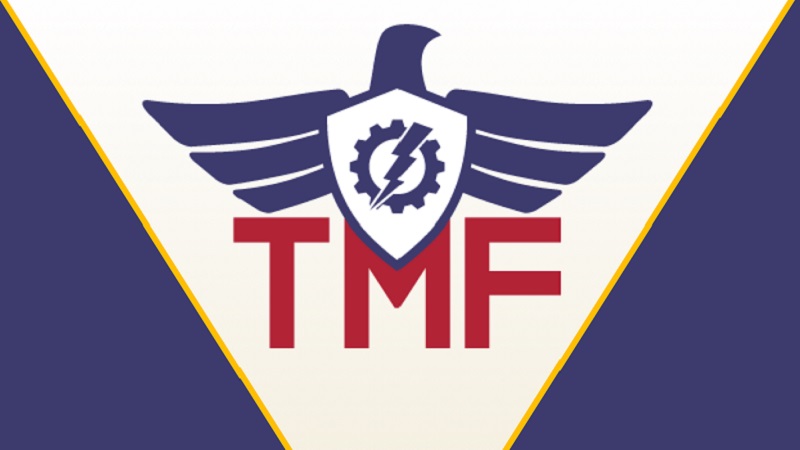
The Technology Modernization Fund (TMF) announced its latest round of awards today, which includes $18.2 million for the State Department to leverage generative AI technology to streamline data processing.
As its first generative AI-driven project award, TMF said the investment at the State Department “will play a key role in devising an interagency playbook for the responsible implementation of GenAI practices across government entities.”
“This investment marks a pivotal moment to reshape how DOS conducts diplomacy and promotes American interests worldwide,” the State Department’s Chief Data and AI Officer Matthew Graviss said. “This project will enable our diplomats to focus on essential analysis and strategic engagement, boosting our efficiency and strengthening America’s global diplomatic advantage.”
The agency said that the State Department generates an average of 6,300 diplomatic cables daily alongside numerous media summaries and reports.
With the $18.2 million in TMF funding – the largest award of several announced today – the agency aims to harness safe, secure, and responsible generative AI to empower its global workforce to be more efficient and improve access to enhanced information resources.
“By integrating GenAI into its operations, DOS seeks to streamline data processing, enabling personnel to quickly distill insights and allocate more time to achieving impactful diplomatic outcomes,” the press release says.
TMF Awards $31M to Education, State, NOAA for ZT, Website Revamps
The TMF’s funding announcement today also included a second award for the State Department to transition to a zero trust architecture model; for the Education Department to revamp its StudentAid.gov website; and for the modernization of the Department of Commerce’s (DoC) weather.gov site.
“TMF investments aren’t just about upgrading systems; they’re about transforming the very fabric of how services are delivered,” said Acting TMF Executive Director Larry Bafundo. “We’re proud to empower agencies like the U.S. departments of Education, Commerce, and State to enhance services, fortify security, and foster efficiency.”
The Federal Student Aid (FSA) office of the Department of Education was awarded $5.9 million in TMF funding to introduce the “My Activity” feature on StudentAid.gov – a hub for students, parents, and borrowers to access and manage their Federal aid.
The new “My Activity” feature aims to consolidate documents and data, providing users with a centralized and user-friendly platform to track their activities and status. FSA said it anticipates a reduction in wait times and the need for customer care inquiries.
“This Technology Modernization Fund investment will allow FSA to bring the digital experience for over 43 million borrowers into the 21st century by adding features to StudentAid.gov and making the site easier to access and navigate,” said Richard Cordray, FSA chief operating officer. “In doing so, we will also continue to serve as good stewards of taxpayer dollars by decreasing FSA’s costs.”
TMF also granted the DoC’s National Oceanic and Atmospheric Administration (NOAA) $12 million to give a facelift to weather.gov.
The agency notes that the National Weather Service’s “outdated infrastructure poses reliability concerns and lacks essential features” like mobile compatibility and multilingual support.
“Similarly, the associated application programming interface (API) faces challenges, causing disruptions in accessing dependable weather information for the American public,” the press release says.
TMF’s $12 million investment aims to help NOAA modernize operations across over 150 National Weather Service offices worldwide. The redesigned platform would not only enhance information accessibility but also establish a sustainable, mobile-first infrastructure.
This modernization effort also plans to integrate features such as language translation capabilities to improve access for underserved communities, the agency said.
“Weather.gov is a primary government resource for communicating lifesaving weather warnings to the public, and the nation needs more access and reliability,” said Ken Graham, director of NOAA’s National Weather Service. “The TMF funding will allow the National Weather Service to redesign weather.gov to be more reliable and accessible, focused on customer experience and tailored to the needs of those who are making life-saving decisions for themselves and their communities.”
Finally, TMF announced its $13.1 million investment for the State Department to transition to a zero-trust security architecture model, emphasizing continuous verification of user and device identities before granting access to data and resources.
“This TMF investment will enable us to accelerate our efforts to improve cybersecurity and user experience through rapid implementation of Zero Trust identity concepts, which is key to supporting our global diplomacy mission,” said the department’s Chief Information Officer Kelly Fletcher.
Specifically, the State Department aims to expedite the creation of a comprehensive Consolidated Identity Trust, merging user attributes and implementing centralized workflows for automating onboarding and offboarding processes. The modernization effort would bolster the agency’s ability to maintain high information security standards and comply with Federal identity and access management mandates.
“As chair of both the TMF Board and Chief Artificial Intelligence Officers Council, I’m thrilled to see our catalytic funding stream powering the use of AI and improving security at the State Department,” Federal CIO and TMF Board Chair Clare Martorana said. “I’m equally excited about the TMF’s two other critical investments – with students getting more modern access to manage their education journeys and the public gaining access to life-saving weather information in an accessible manner for all.”
Today’s TMF investment of $49.2 million is on par with last month’s announcement of $47.8 million to help NASA and the Department of Labor address security vulnerabilities and update legacy technology.
